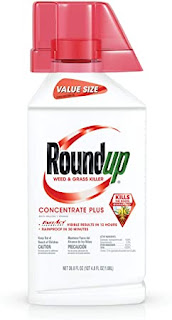Roundup Cancer Lawsuit
A common grass and weed killer you or your family may use at your home contains an herbicide that is considered carcinogenic. Roundup Weed & Grass Killers, which are used for lawns and gardens in residential areas, on farms and at businesses, features the ingredient glyphosate. In June 2017, health officials in California announced glyphosate will be added to that state’s list of cancer-causing chemicals. Products containing this herbicide that are sold in California will be required to feature a warning about how exposure to the chemical may cause cancer, birth defects or reproductive harm.
Monsanto Roundup Lawsuit update 2020
This warning comes after more than 1,000 non-Hodgkin’s lymphoma patients have sued Monsanto, the company that produces Roundup products, claiming that the products with the chemical have caused their cancer. In March 2015, the International Agency for Research on Cancer, part of the World Health Organization, published a report stating that glyphosate probably causes cancer in people. Monsanto continues to insist that people and pets are safe to enter areas that have been treated by Roundup products, even stating on their website, “Glyphosate targets an enzyme found in plants but not in people or pets.”
If you or a loved one have contracted cancer and have used Roundup weed killers in the past, you may be entitled to compensation for your pain and suffering. Here is what to know about current lawsuits against Roundup and Monsanto.
Roundup Weed Killer Lawsuits, Monsanto Ignores Science
Attorneys and activists working on behalf of clients who have become sick because of Roundup Weed & Grass Killers say Monsanto is deliberately ignoring life-threatening facts in their manipulation of how they present their products to agricultural professionals, farmers and everyday users of their products. Glyphosate’s potential side effects may extend beyond the farm or garden, as residue from the chemical has been found in grocery staples like cherries and cereal, which may harm pregnant women and their unborn children.
In October 2017, the European Parliament’s Environment and Agriculture committees held a hearing titled The Monsanto papers and glyphosate, in which “scientific misrepresentation, data manipulation and collusion with government officials” by Monsanto was spotlighted. Monsanto was invited to testify but was absent from the hearing. By the end of 2017, the European Commission will vote on whether to extend its approval of glyphosate or not, as well as create a human health risk assessment for glyphosate.
In the United States, the Environmental Protection Agency (EPA) continues to state that glyphosate “has low toxicity for humans,” though Monsanto has been accused of colluding with the EPA and even ghostwriting “studies” that support its claims of product safety and killing studies that support carcinogenic evidence.
Despite Monsanto’s attempt to sue California to block the listing of glyphosate on the state’s cancer-causing chemicals list, the California Supreme Court rejected Monsanto’s claim. While the U.S. federal government has been slower than other global environmental agencies in exposing Monsanto’s harm, agencies at the state level are taking steps to protect citizens.
Roundup Weed Killer Lawsuits, What Glyphosate Victims Should Do?
If you have contracted non-Hodgkin’s lymphoma and have used Roundup products, the cause of cancer may be exposure to glyphosate. It is important to gather any evidence you can that shows you purchased the products and, if possible, used them.
Even if you currently have no health issues, if you have used Roundup in the past, keeping evidence of receipts and of usage is wise. It is up to you whether or not to continue using products that contain glyphosate, and to be aware of certain foods you and your family may be eating that may contain glyphosate residue, such as instant oats and baby foods.
Multiple class action lawsuits filed against Monsanto, such as one filed in May 2016 by Nebraska farmers. Lawsuits against Monsanto may include allegations concerning the lack of a warning label about the association of glyphosate to cancer, a misrepresentation about the safety of Roundup products, and the continued use of glyphosate in Roundup products, despite the knowledge of scientific evidence showing causation of cancer.
At Pittman, Dutton & Hellums, we are extremely sorry for the suffering you or a loved one has undergone because of the negligence of a company in adequately warning customers about the potential health effects of using glyphosate. We can help you in pursuing potential litigation against Roundup or any company whose products you used that did not feature an adequate warning of glyphosate.
We do not receive compensation unless we obtain it for you, the victim. Please contact us for a free consultation on how we can help you or a loved one receive justice.
Read More:

Comments
Post a Comment